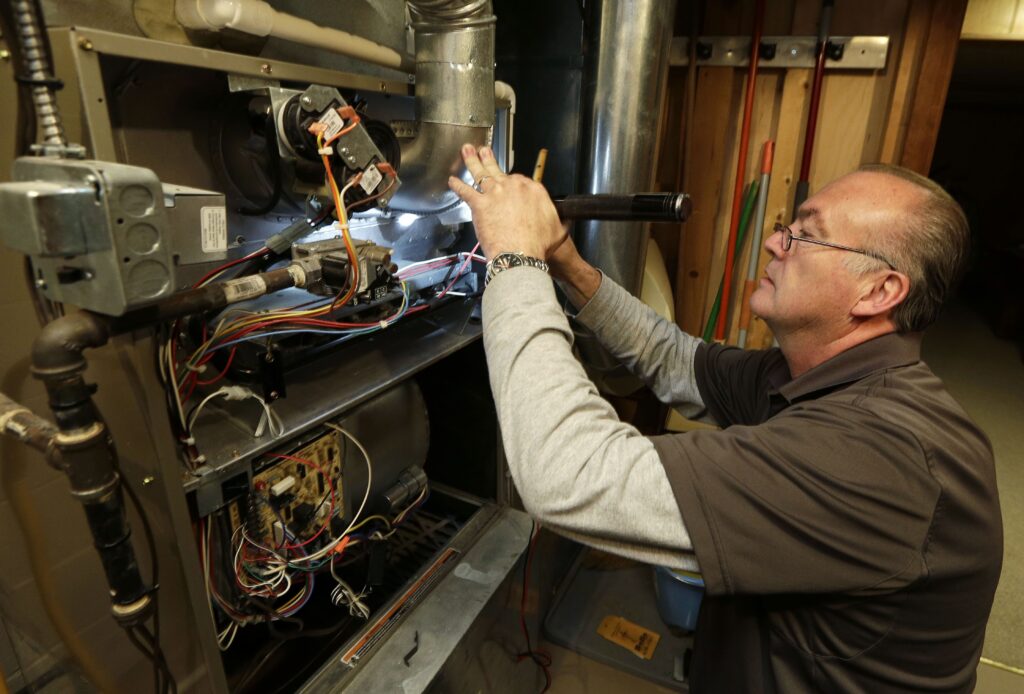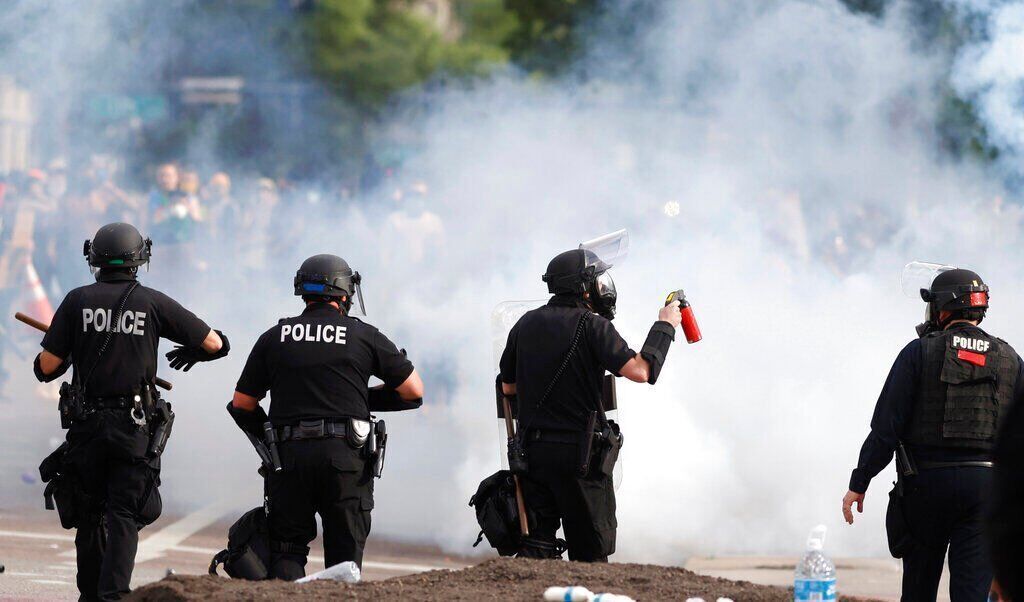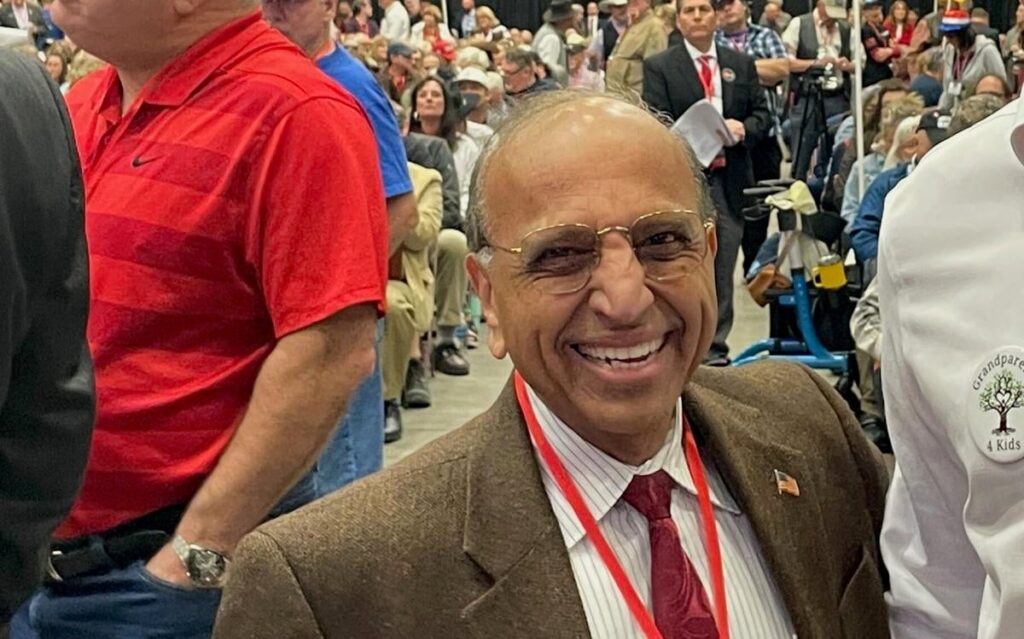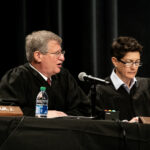Denver City Council approves controversial rezoning in University Hills

The Denver City Council voted 10-3 to rezone several properties in the University Hills neighborhood following more than four hours of tense debate Tuesday.
One of the sites had become an emotional sticking point as the owners of a medical center included in the rezoning pleaded with councilmembers to vote against it.
They said the rezoning threatened the future of the Evans Medical Center, a clinic serving immigrants, refugees, veterans and other marginalized communities, and would violate their property rights.
The rezoning changes the medical center site, and two other adjacent parcels, from a campus healthcare district to a mixed-use district. That would allow for more housing options and a broader variety of services in the area, staff reports said.
Councilmembers said the rezoning would allow for the medical center to continue operating and have the opportunity to grow and offer new services.
It will also cut building height restrictions at the medical clinic site from approximately six stories down to three, or four stories if projects include affordable housing.
District 4 Councilmember Kendra Black proposed the rezoning. In her initial application, Black discussed how development has affected the neighborhood. An area that began in the 1950s as “modest single-family homes and retail along the commercial corridors” eventually underwent a “massive transformation with a huge amount of new development,” she wrote.
Residents have asked for more land use planning for the area to manage future development, she said, adding that zoning created in 2010 created inconsistent zoning districts in the area.
A recently approved plan called the Near Southeast Area Plan took two years to create and recommends transitioning to lower building heights as development moves away from corridors and toward neighborhoods, she said Tuesday.
It is her responsibility to help implement that plan, Black said. “Without implementation, the plan is only aspirational,” she said.
Black noted the new zoning does not prevent the clinic from expanding or rebuilding into a three-story building. Councilmember Kevin Flynn cast doubt on the property owners’ statement that the rezoning will shutter the clinic.
Of the zoning process that resulted in confusion and seemed to pit a neighborhood against a medical clinic that councilmembers said was loved by the neighborhood, an emotional Councilmember Amanda Sandoval said, “This is a failure of our system.”
Councilmember Debbie Ortega called the potential impact on the medical clinic’s ability to operate “a real concern.” The room burst into applause as Ortega announced she would vote against the rezoning.
Dozens of people signed up to speak during the public hearing and public comment lasted more than two hours.
Tony Oliver, a commercial real estate broker representing the property owners, refuted Black’s characterization of the plan early in the meeting as “upzoning.”
“That is absolutely not true in our case,” he said. “It is a downzone.”
The rezoning plan for the medical campus is not consistent with the rest of the proposal, he said. The rezoning “could force the clinic to close” by negatively affecting the site’s property value, jeopardizing the 6,000 patients it serves, he said.
“Evans Medical Center and the professional office building are being unfairly targeted,” he said.
The Evans clinic owners, Dr. Sara Vatan and Ramin Vatan, told councilmembers that the rezoning would drop their property value by 65% and bankrupt the center.
“We will go into negative equity the next day,” Ramin Vatan said.
He said the proposal smacked of racist spot zoning and historic redlining practices that depleted the values of properties owned by people of color in order to force them from certain areas, an allegation councilmembers said was unfounded.
A tearful Sara Vatan said the city should have made an extra effort to contact them as property owners with such drastic impacts to their property.
The opposing sides often offered contradictory accounts about how the rezoning process transpired.
In one instance, the Vatans maintained they were not contacted by Black before February, while Black said impacted property owners were receiving notifications as early as January.
Multiple neighborhood residents said they were concerned by plans, which eventually stalled out in April, to build a seven-story apartment building on the site, saying taller development should be kept further away from residential areas.
Supporters of Black’s proposal maintained that the rezoning was not motivated by racism and emphasized that the zoning would continue to permit the property to operate a medical clinic.
Many praised the center’s work, although a handful of speakers said they believed the property owners were motivated by potential profits from redevelopment deals.
One resident, Jared Ricchini, said he spent two years participating in the development of the Near Southeast Area Plan and that the neighborhood has been asking the city for a neighborhood plan for years. He urged the council to approve the rezoning.
“The neighborhood welcomes Evans Medical Center,” Ricchini said, adding the community would like to see the clinic expand. “We hope to see them stay.”















